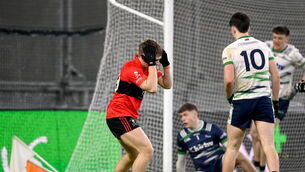Five talking points from the weekend’s GAA action

Problem, of course, is the wrong word for the issue of where Donegal’s Michael Murphy should be positioned for optimum effect.
But it is a head scratcher for manager Rory Gallagher all the same and the suggestion is that the big man may spend more time at full-forward against Mayo than he has in the position so far this summer.












